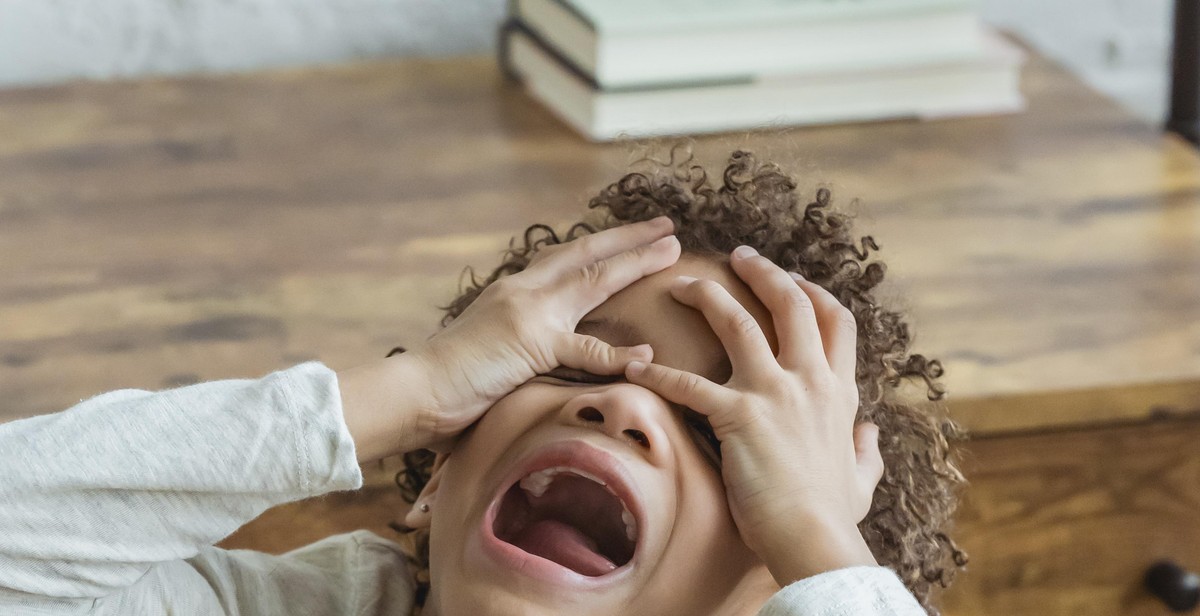Introduction: My Personal Experience with a Controlling Partner
When I was in my early 20s, I found myself in a relationship with a controlling partner. At first, I didn’t realize what was happening. He seemed caring and attentive, always wanting to know where I was and what I was doing. But soon, his behavior became more and more restrictive. He would get upset if I wanted to spend time with my friends or family, and he would constantly check my phone and social media accounts.
It wasn’t until I started feeling trapped and suffocated that I realized what was happening. My partner was controlling me, and I didn’t know how to handle it. It took a lot of courage to confront him and end the relationship, but it was the best decision I ever made.
Since then, I have become a love and relationships psychology guru, using my personal experience and professional knowledge to help others navigate similar situations. In this article, I will share my insights and advice on how to handle a controlling partner and free your love.
The Importance of Addressing Control in Relationships
Control is often a subtle and insidious dynamic in relationships. It can start with small requests or demands, but over time it can escalate into emotional abuse or even physical violence. That’s why it’s crucial to address controlling behavior early on and take steps to protect yourself.
In this article, I will discuss the signs of a controlling partner, the impact of control on relationships, and practical strategies for freeing yourself from a controlling partner. Whether you’re currently in a controlling relationship or know someone who is, this article will provide valuable insights and guidance.

What is a Controlling Partner?
A controlling partner is someone who tries to dominate and manipulate their significant other in various ways. This behavior can take many forms, including:
- Isolation: A controlling partner may try to limit their partner’s contact with friends and family, making them feel alone and dependent on the relationship.
- Jealousy: A controlling partner may become excessively jealous and possessive, leading to accusations and distrust.
- Constant Criticism: A controlling partner may criticize their partner’s every move, making them feel inadequate and lowering their self-esteem.
- Financial Control: A controlling partner may try to control their partner’s finances, making them feel trapped and unable to leave the relationship.
- Physical and Emotional Abuse: In extreme cases, a controlling partner may resort to physical or emotional abuse to maintain power and control over their partner.
It is important to note that a controlling partner may not exhibit all of these behaviors, and some may be more subtle than others. However, any behavior that seeks to control or manipulate a partner is not healthy and can lead to a toxic and abusive relationship.
If you are in a relationship with a controlling partner, it is important to recognize the signs and seek help. You deserve to be in a relationship where you are treated with respect and equality.

Signs of a Controlling Partner
Being in a relationship with a controlling partner can be emotionally and mentally draining. It can also lead to physical abuse, which can be dangerous and life-threatening. Here are some signs of a controlling partner:
Emotional and Verbal Abuse
One of the most common signs of a controlling partner is emotional and verbal abuse. This can include name-calling, insults, and belittling. A controlling partner may also manipulate their partner’s emotions, making them feel guilty or ashamed.
Isolation and Monitoring
A controlling partner may try to isolate their partner from friends and family. They may also monitor their partner’s activities, including phone calls, texts, and social media. This can lead to feelings of isolation and dependence on the controlling partner.
Financial Control
A controlling partner may also try to control their partner’s finances. This can include limiting their access to money or controlling how they spend it. This can lead to financial dependence on the controlling partner and make it difficult for the victim to leave the relationship.
Physical Control
In some cases, a controlling partner may use physical violence to maintain control. This can include hitting, pushing, or restraining their partner. Physical control can be dangerous and can escalate quickly.
If you or someone you know is in a controlling relationship, it’s important to seek help. There are resources available to help victims of domestic violence and abuse. Remember, no one deserves to be in a controlling or abusive relationship.

Why do People Become Controlling?
Controlling behavior in relationships can be harmful and often leads to conflicts and misunderstandings between partners. But why do some people become controlling in the first place?
There are several reasons why someone might develop controlling tendencies:
- Fear of losing control: Some people feel a need to control their partner or their environment as a way to manage their own anxiety and insecurity. They fear that if they don’t have control over everything, they will lose their sense of security and stability.
- Past experiences: People who have experienced trauma or abuse in the past may develop controlling behaviors as a way to protect themselves from future harm. They may feel that by controlling their environment, they can prevent bad things from happening.
- Low self-esteem: Individuals with low self-esteem may use controlling behaviors to feel more powerful and confident in their relationships. They may believe that by controlling their partner’s behavior, they can ensure their love and loyalty.
- Personality disorders: Certain personality disorders, such as narcissistic personality disorder, can lead to controlling behavior in relationships. Individuals with these disorders may feel entitled to control others and have difficulty empathizing with their partner’s needs and feelings.
It’s important to note that controlling behavior is not acceptable in any relationship and can be a sign of emotional abuse. If you or someone you know is experiencing controlling behavior in their relationship, it’s important to seek help and support.

The Impact of a Controlling Partner
Being in a relationship with a controlling partner can have severe consequences on your mental and physical health. The effects of controlling behavior can be subtle and may not be noticeable at first, but they can escalate over time and become very damaging.
Mental Health Effects
- Anxiety: A controlling partner can make you feel anxious about everything you do, say, or wear. You may feel like you are walking on eggshells all the time, and this can lead to constant worry and fear.
- Depression: The constant criticism and belittling from a controlling partner can make you feel worthless and hopeless. This can lead to depression and feelings of sadness, hopelessness, and despair.
- Low self-esteem: Being in a relationship with a controlling partner can make you doubt yourself and your abilities. You may feel like you are not good enough or that you cannot do anything right. This can lead to low self-esteem and a lack of confidence.
- Isolation: A controlling partner may try to isolate you from your friends and family, which can leave you feeling lonely and cut off from the world. This can lead to feelings of isolation and a lack of social support.
Physical Health Effects
- Stress: The constant stress and anxiety caused by a controlling partner can have physical effects on your body. You may experience headaches, muscle tension, and fatigue.
- Insomnia: The worry and fear caused by a controlling partner can make it difficult to sleep at night. This can lead to insomnia and a lack of restful sleep.
- Eating disorders: A controlling partner may try to control what you eat, when you eat, and how much you eat. This can lead to eating disorders such as anorexia or bulimia.
- Physical abuse: In extreme cases, a controlling partner may become physically abusive. This can lead to injuries, bruises, and other physical health problems.
| Note: | If you are experiencing physical abuse, seek help immediately. Call the National Domestic Violence Hotline at 1-800-799-SAFE (7233) or visit their website for more information. |

How to Handle a Controlling Partner
Being in a relationship with a controlling partner can be emotionally exhausting and damaging to your self-esteem. It’s important to recognize the signs of controlling behavior and take action to protect yourself.
Set Boundaries
One of the most effective ways to handle a controlling partner is to set clear boundaries. Communicate your needs and expectations with your partner and make it clear what behavior is unacceptable. Stick to your boundaries and don’t allow your partner to manipulate or pressure you into doing things you’re not comfortable with.
Communicate Honestly
Communication is key in any relationship. If you’re feeling overwhelmed or uncomfortable with your partner’s behavior, it’s important to communicate your feelings honestly and openly. Let your partner know how their behavior is affecting you and work together to find a solution that works for both of you.
Seek Professional Help
If you’re struggling to handle a controlling partner on your own, it’s important to seek professional help. A therapist or counselor can help you work through your feelings and develop strategies for dealing with controlling behavior. They can also provide support and guidance as you navigate the challenges of your relationship.
Consider Leaving the Relationship
If your partner’s controlling behavior is persistent and damaging to your emotional well-being, it may be time to consider leaving the relationship. This can be a difficult decision, but it’s important to prioritize your own health and safety. Remember that you deserve to be in a relationship where you feel respected and valued.
Dealing with a controlling partner can be challenging, but by setting boundaries, communicating honestly, seeking professional help, and considering leaving the relationship, you can take steps to protect yourself and find a path towards a healthier, happier future.

Conclusion
Dealing with a controlling partner can be a challenging and emotionally draining experience. However, it is important to remember that you have the power to take control of your own life and make the necessary changes to free yourself from the grip of a controlling partner.
Start by acknowledging that you deserve to be treated with respect and kindness in your relationship. Set clear boundaries and communicate your needs and expectations with your partner. Seek professional help if necessary, such as couples therapy or individual counseling.
Remember that change takes time and effort, and it is important to be patient with yourself and your partner. Be open to compromise and willing to work towards a healthier and more balanced relationship.
Ultimately, freeing yourself from a controlling partner requires strength, courage, and self-love. Trust your instincts, believe in yourself, and take the necessary steps to create the happy and fulfilling relationship that you deserve.
- Acknowledge your worth and set clear boundaries
- Seek professional help if necessary
- Be patient and willing to work towards a healthier relationship
- Trust yourself and take the necessary steps to create a happy and fulfilling relationship
Remember that you have the power to take control of your own life and create the relationship that you truly desire. Don’t let a controlling partner hold you back from experiencing the love and happiness that you deserve.
